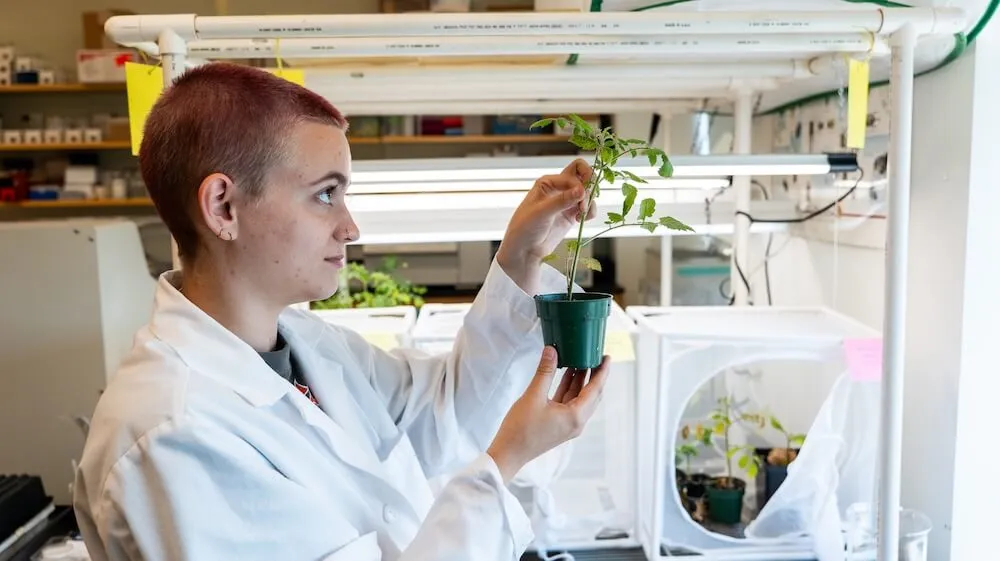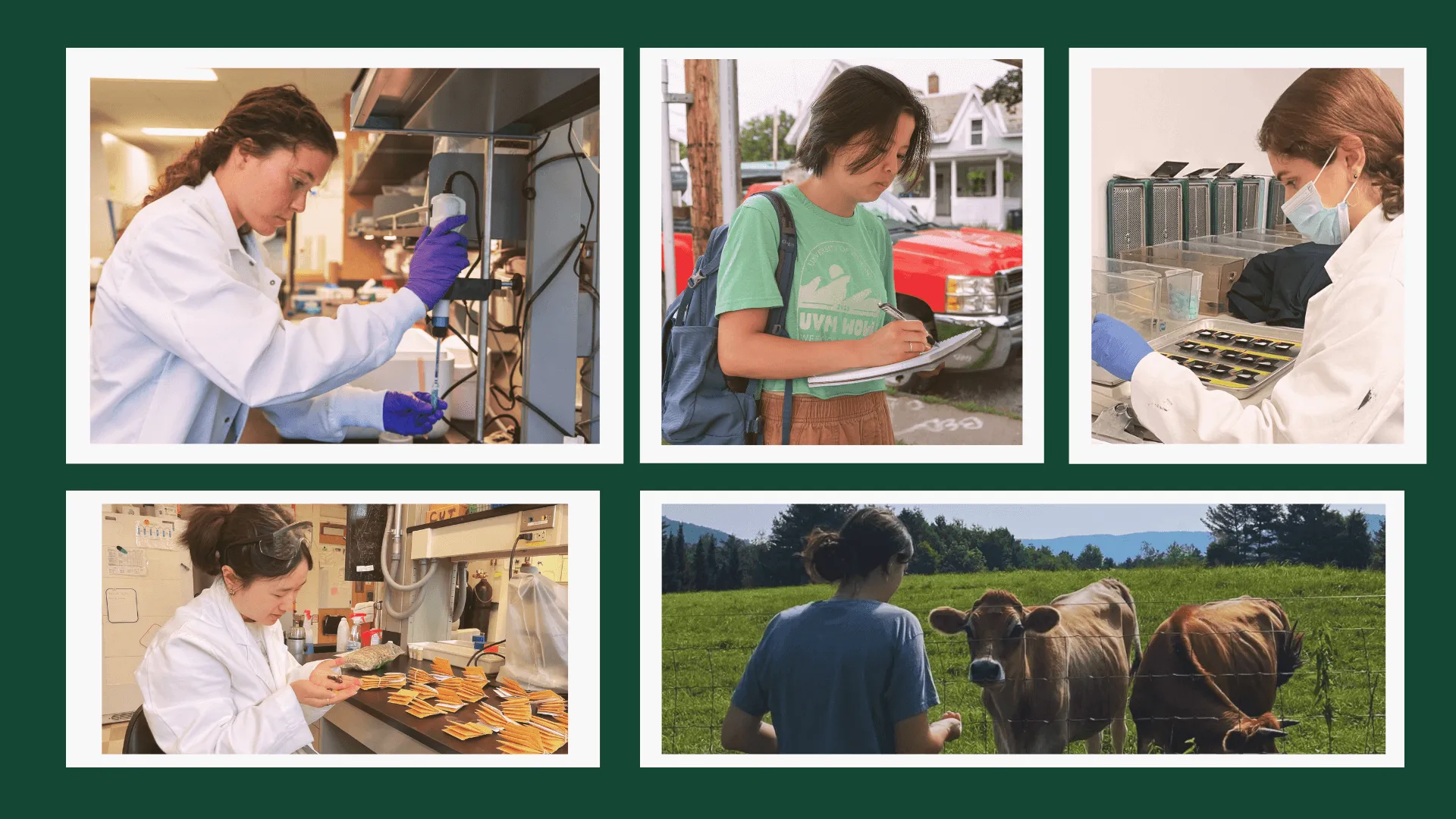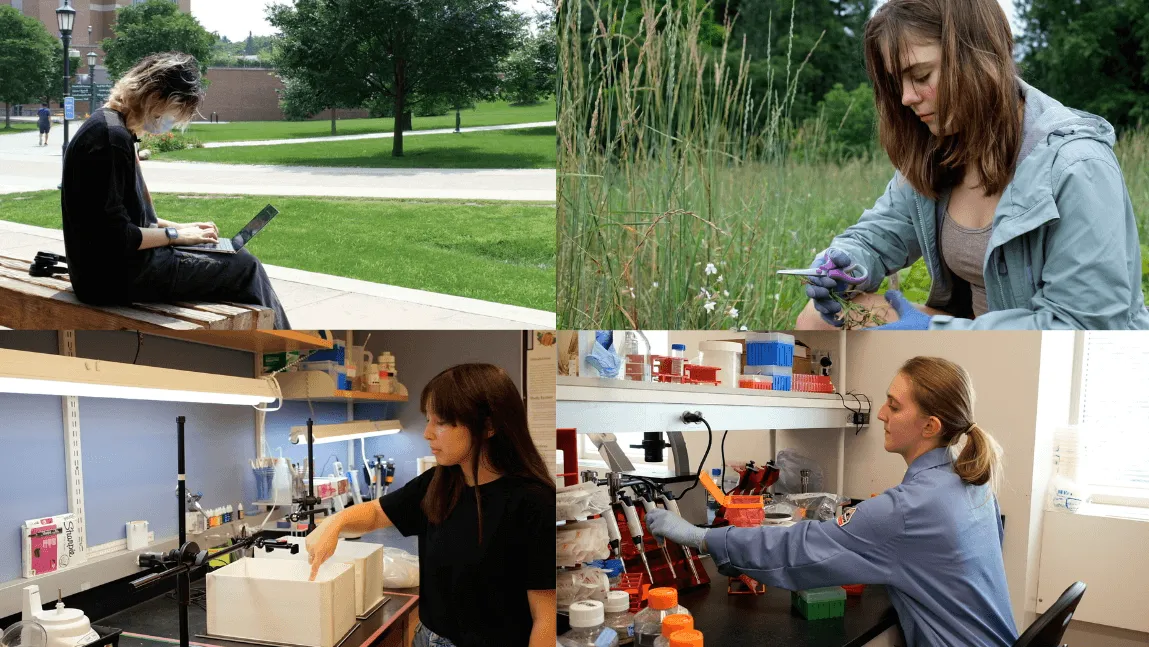Could insects and fungi work together to be a chemical-free alternative to pesticides?
Lucy Lannan, a Food Systems Summer Undergraduate Fellow, is researching an integrated pest management system that uses both mites and fungi to combat aphids, a common and destructive agricultural pest.
Aphids reproduce at a rapid rate. They’re born already pregnant with the next generation, meaning they feed and reproduce simultaneously. Their life cycle allows them to quickly devastate crops. While pesticides are commonly used to control aphids, they can negatively impact the environment and consumers.
Farmers seeking a more sustainability and environmentally friendly approach may seek a biological way to mitigate aphids in their crops. Crazee Mites, or Anystis baccarum, are insects that feed on aphids at every life stage and are used as a beneficial predator in gardens and field crops. To increase their effectiveness, Lucy is exploring how these mites might work in tandem with entomopathogenic fungi, which infect and kill aphids by penetrating their exoskeleton as the fungi grows. She works in Dr. Cheryl Sullivan’s lab researching if these mites will be hardy and adaptable enough to survive the fungi themselves.
Lucy, a Biological Sciences major, says that she first became interested in insects after taking an Entomology and Pest Management course with Dr. Yolanda Chen. She was fascinated by the diversity and uniqueness of insects.
Supported by the Food Systems Research Institute, she spent the summer working in Dr. Sullivan’s lab and gained first-hand experience running her own experiments. "I love the lab," Lucy said. "I couldn't decide what I wanted to do because I wanted to do everything and working in the lab kind of lets you do everything. So that's been fun for me."
About the FSRI:
The Food Systems Research Institute (FSRI) at the University of Vermont (UVM) funds people and planet-centered collaborative research that connects disciplines and communities to answer complex food systems questions.
The FSRI funds undergraduates to do summer research with UVM researchers on critical food systems topics.


